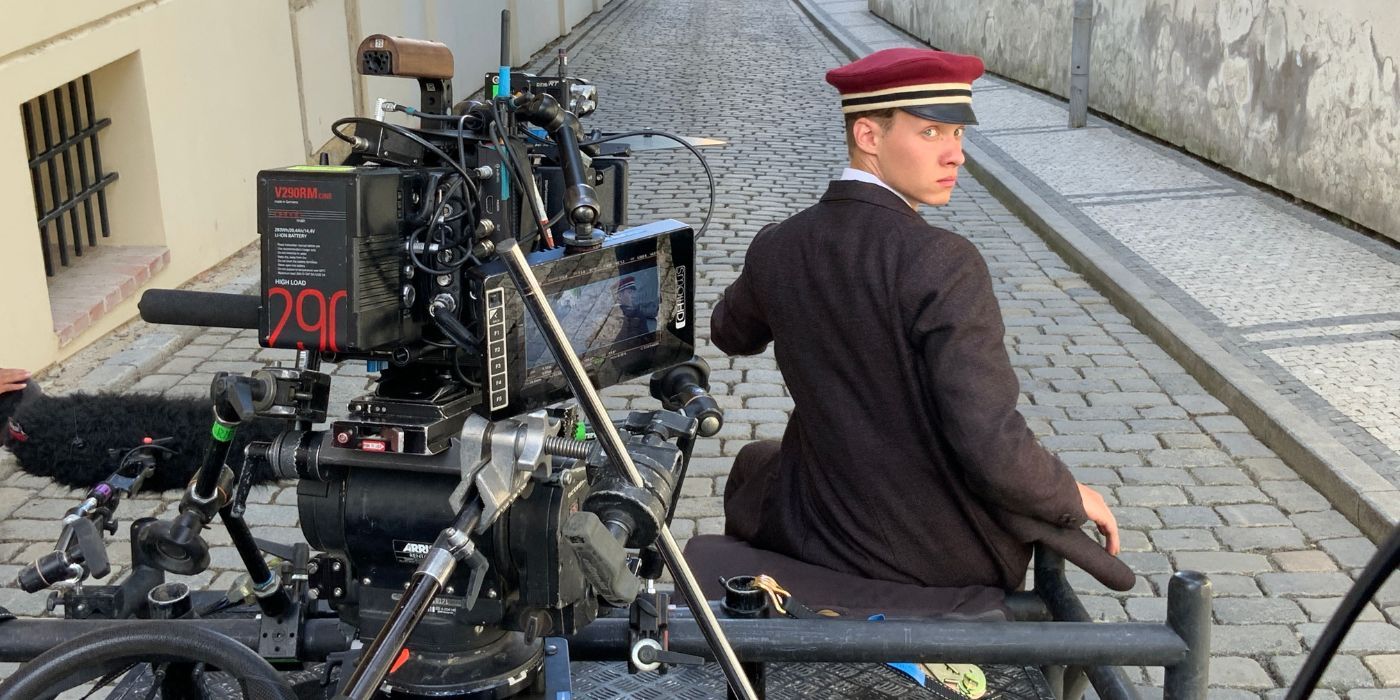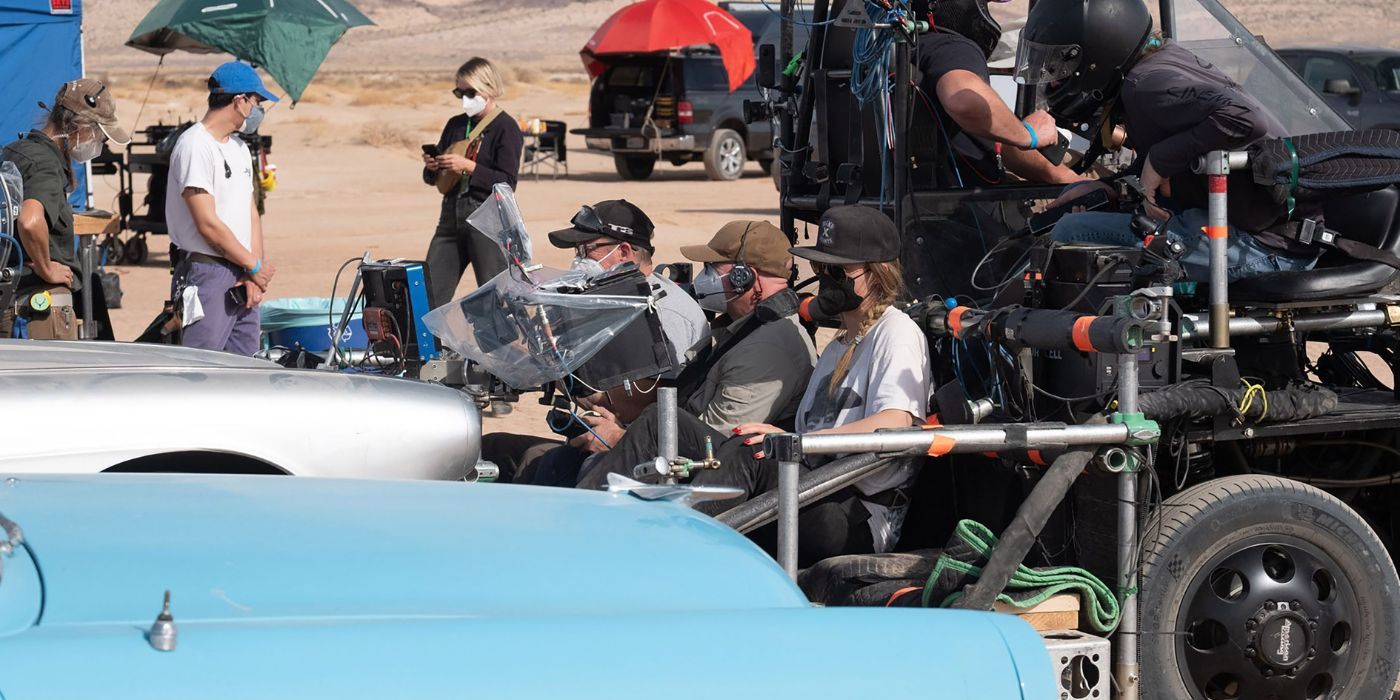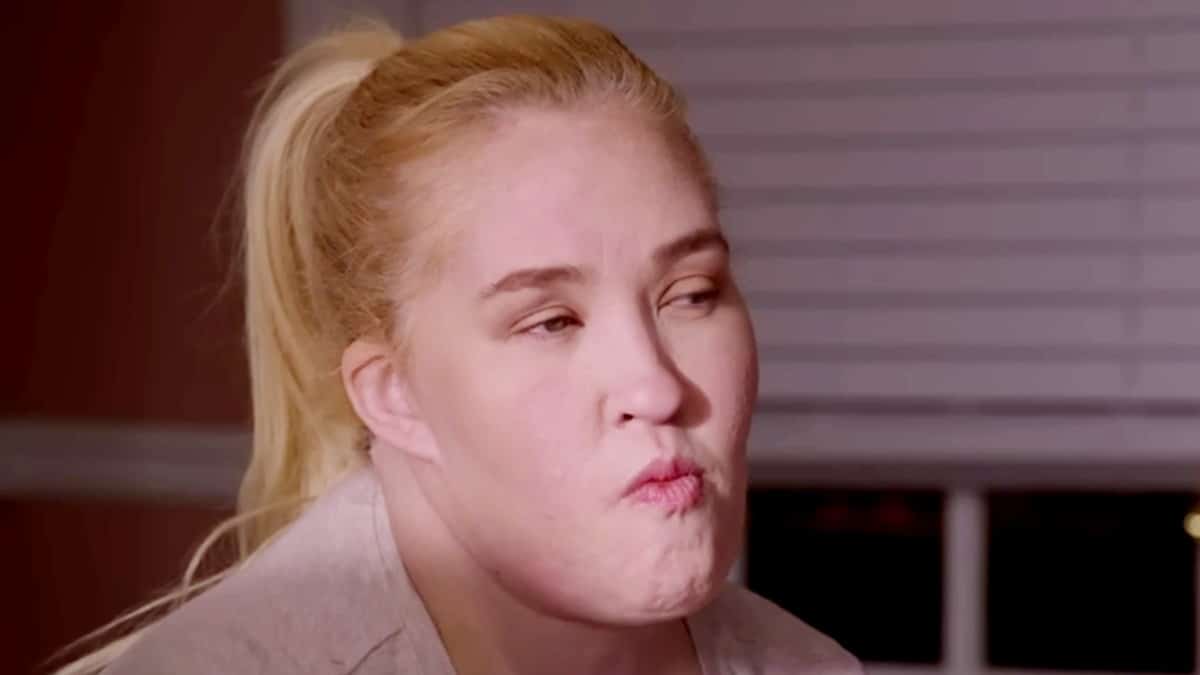Every film and TV project, no matter how big or small, needs a crew to function. Each set has a dedicated crew responsible for making an intricate behind-the-scenes process become polished and ready for the public. While most people are familiar with the big key creative members — director, producer, cinematographer, editor, etc. — one primary role helps keep the ship sailing on smooth waters from start to finish: the line producer. The line producer is one of the more involved roles on a set, as they are part of every step of the process from pre-production through post-production. They break down the budget, manage the ins and outs of scheduling, are in charge of hiring key roles in all stages, handle other logistical responsibilities, and act as a leader and points of contact for several departments.
If you’ve ever been interested in becoming a line producer, or are just curious about the role, we’ve compiled a deeper look at what a line producer does through a project’s lifespan.
What is a Line Producer Responsible for?
Pre-Production
Beginning with pre-production, a line producer must set up all key parts of a production. During the early stages, budgeting is the primary task of a line producer, which typically happens closer to the end of the initial developmental stage of a project. Before officially heading into pre-production, a line producer thoroughly goes through the screenplay to pull out all potential costs. These cover anything necessary for a project to function, including locations, equipment, food cost, and salaries. The screenplay breakdown will also determine the shooting schedule’s length, which must also be factored into the budget. From there, the line producer will create a more detailed shooting schedule for the day-to-day with call times and locations. Additionally, the line producer oversees hiring key department heads, including the remainder of the production team, casting director, production designer, director of photography, key wardrobe, key hair and make-up, location manager, sound mixer, and editor.
Production
Once everything is locked down, filming begins and the line producer becomes the day-to-day point of contact for the crew. First, they ensure that all the necessary insurance is handled for equipment, locations, and crew. They are the main point of contact for payroll, keeping on top of timely payments. Before the cameras roll, the line producer must talk with each department head on set for the day to check that each department is prepared for the shoot day ahead. During this time, it also gives department heads the opportunity to pose any questions and voice concerns to the line producer about the coming days of filming. The line producer should be on the lookout for any conflicts that arise, ready to resolve them if necessary.
Production is also when a line producer begins preparing for post-production, which once more includes hiring the necessary key creative members. These typically include additional editing staff, composers, and sound designers. A line producer must also lock down a post-production space for the team, ensure everything is in place for the post-production workflow, and ensure delivery of the necessary assets upon production’s completion.
Post-Production
Once a project heads into the post-production stages, a line producer’s responsibilities begin to wind down, as a post-production supervisor handles a majority of the process. But first, the line producer must gather all wrap information, which comes from previously assembled information. A line producer will pass on schedules, budget breakdowns, contracts, and any other related materials that were needed for the pre-production and production stages of the project. This is also where the line producer looks for budgetary changes such as returning equipment early, coming in under budget, and seeking out tax incentives.
Finally, the line producer is in charge of deliverables on a couple of different fronts. Foremost is ensuring that the post-production team has everything they need to complete the film. This also means a line producer will meet and talk with post-production heads of the department to get more specifics and double-check that everything is in place for a smooth workflow. Additionally, the line producer works with the team to get deliverables out for promotion and marketing. These are assets such as a cut for distributors, still photographs for marketing, and similar items.
How Many Line Producers are on Set?
Typically, a set will have one line producer overseeing everything during production. Depending on the scale of the project, a line producer may rely on additional producers such as associate producers or related roles like a production coordinator who help put everything together at different stages of a project. The smaller the project, the more likely the line producer will be the primary producer on set. Similarly, if a project is something like a major blockbuster or something VFX-heavy, different types of producers become more integral to the project to ensure that everything runs the way it should on set and in the offices. When it comes to post-production, the same method is employed. However, there may be a few different line producers for the post-production stages that hold more focused duties than the primary line producer, depending on the needs of the project.
How to Become a Line Producer
As with any job, working up to the line producer role takes time, and often begins with entry-level positions within the film industry. Those roles come in different forms, with experience available through freelance work, independent projects, college internships, or other methods. Working on sets as a production assistant or learning directly from a line producer or other producers on sets will help provide more hands-on experience. They provide an opportunity to learn generally how a film set operates, as well as offer a closer look at what each person on set is responsible for day-to-day. Working on sets will help with networking, providing connections that could prove useful down the line.
Additionally, having knowledge and experience with budgeting, business, and other administrative duties are invaluable skills to have as a line producer. Leadership experience or being comfortable taking on a leadership role is another asset, as much of being a line producer includes delegating various roles. The more relevant skills you have, paired with solid connections, the more likely you can move up the chain to become a line producer.
























































![Key Metrics for Social Media Marketing [Infographic] Key Metrics for Social Media Marketing [Infographic]](https://www.socialmediatoday.com/imgproxy/nP1lliSbrTbUmhFV6RdAz9qJZFvsstq3IG6orLUMMls/g:ce/rs:fit:770:435/bG9jYWw6Ly8vZGl2ZWltYWdlL3NvY2lhbF9tZWRpYV9yb2lfaW5vZ3JhcGhpYzIucG5n.webp)



















